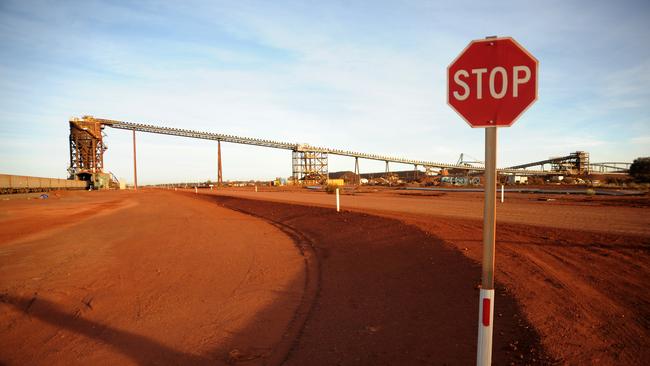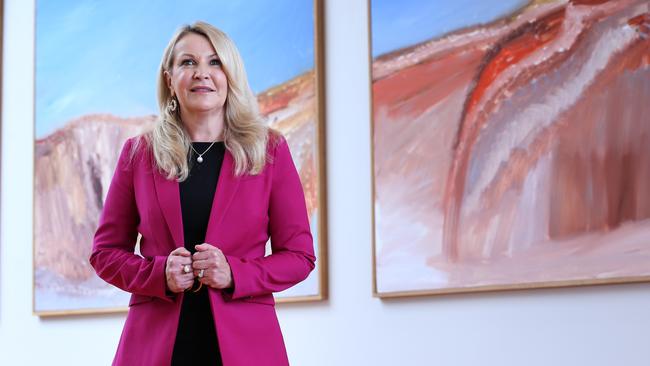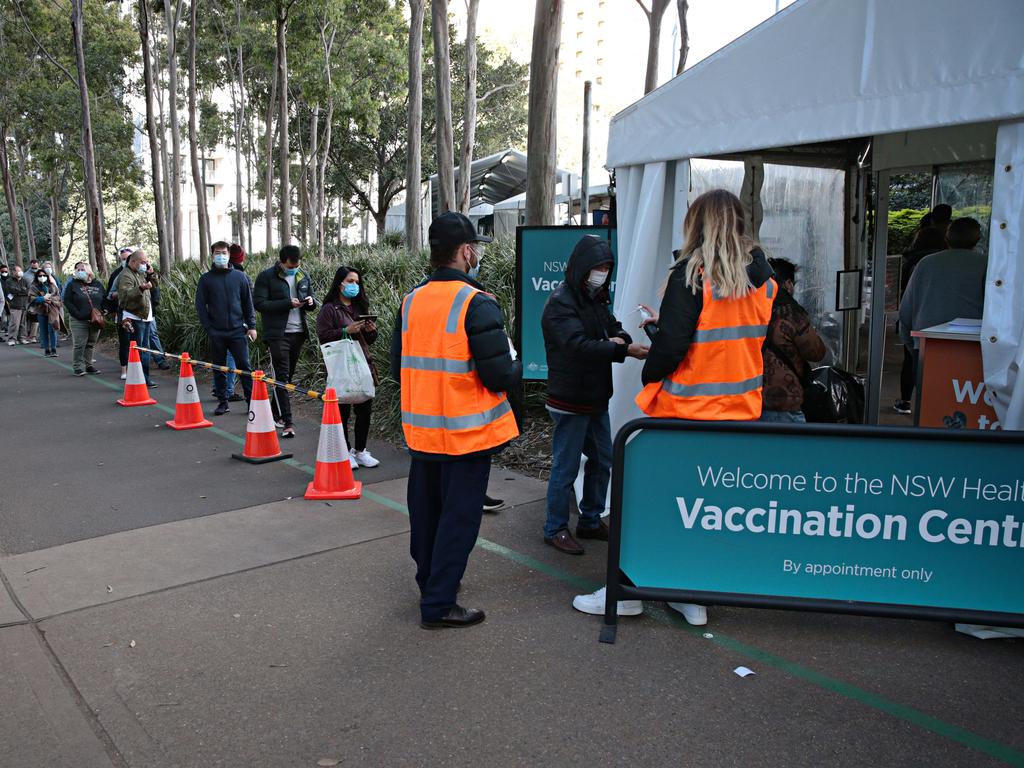Fortescue to keep mining at Cloudbreak mine in WA after Covid scare
A potential Covid-19 case at a Fortescue Metals mine sent shockwaves through the mining industry on Wednesday.

A potential Covid-19 case at a Fortescue Metals mine sent shockwaves through the mining industry on Wednesday, stoking fears over the vulnerability of the sector that relies on a large fly in, fly out workforce in remote sites.
The initial threat to Fortescue’s Cloudbreak mine were downplayed, with health authorities saying the maintenance worker returned only a “very, very” weak positive result, had previously tested positive some months ago, and several close contacts had returned negative results.
But the announcement of the potential case by West Australian Premier Mark McGowan came at the end of Kalgoorlie’s annual Diggers & Dealers conference, at which some of the industry’s most senior leaders called for an acceleration of the vaccine rollout to help Australia work its way clear of the threat posed by the Delta variant.
The FIFO worker was at Perth Airport early in the morning on July 20, at the same time as a man infected with the Alpha strain of the virus who flew from Queensland to WA after completing hotel quarantine.
The contractor then spent a week at the Fortescue mine before returning to Perth and visiting entertainment venues across the city, including the busy Subiaco Hotel.
Fortescue said on Wednesday it had not locked down its Cloudbreak mine in response to a positive Covid case that visited the remote Pilbara mine, saying it was working with the WA health department to track and trace the contacts of the maintenance worker.
About 2000 people work at Cloudbreak at any one time, with many of those present during the man’s stay at the mine.
Fortescue chief executive Elizabeth Gaines said it was too early to tell how serious the potential outbreak was, with the company and health authorities still scrambling to contact workers who had returned home, and identified those who were still on site who may have had contact with the man.
“I guess one of the slight benefits of the mining industry is we can contact trace, we know exactly who’s been sleeping in our villages, we know exactly who’s been on our flights. So in fact, we’ve got a lot of data that we can now work through and do that contact tracing,” she said.

Fortescue said in a statement the contract maintenance worker was isolating while waiting for further tests, but other workers on the site would be treated as casual contacts and would not be required to isolate unless they were subsequently identified as a close contact.
Ms Gaines said the potential outbreak was a potent reminder that an acceleration of the vaccination rollout was required to keep Australia safe and open amid the increased risk of the Delta variant.
“If anyone’s asked me recently what keeps me awake at night, it’s Covid, and the potential for a significant outbreak in our broader community,” she said.
“The testing has picked it up, contact tracing has come into effect. We’ve got rapid and very well-established protocols for dealing with this, we’ve been dealing with it for a long time.”
The potential outbreak affecting Fortescue’s Cloudbreak mine comes only a month after Newmont Mining was forced to lock down more than 700 workers for two weeks at its Tanami Gold mine in the Northern Territory after a Victorian man – believed to have picked up the virus when forced by Queensland authorities to quarantine for a day while in transit – tested positive to the disease.
Ms Gaines said it was far too early to determine how big a threat the positive test posed to its operations, but said she would not hesitate to close down the mine – which produces about 40 million tonnes of ore a year – if there was any risk the virus had been transmitted while on site, or if health authorities required workers on site to isolate or quarantine.
“We haven’t as yet, but we’re working through the contact tracing,” she said. “Anybody who needs to isolate, we can immediately ask to do so – we do that regularly anyway. Anyone who presents with cold and flu symptoms, they isolate.
“The health and safety of our team is the highest priority and if that meant we had to do something like a three-day lockdown, then that’s what we would do. But that’s not the advice we have from the health department.”
With only about 16 per cent of the WA population vaccinated, and the mining industry in the grip of a skills crisis, Ms Gaines said it was not possible for the sector to try to mandate vaccinations for access to its sites.
But she said Fortescue would do everything it could to help its workers get vaccinated, including supporting the establishment of vaccination hubs at airports and workplaces.
Ms Gaines is one of a slew of mining industry executives attending Diggers who have called for an acceleration of the vaccination rollout.
On Tuesday, Gina Rinehart’s top iron ore executive, Gerhard Veldsman, told delegates that the national cabinet’s latest four-stage plan to move beyond Covid-19 lockdowns through vaccination needed firm targets to become more than simply a “wishlist”.
Northern Star Resources boss Stuart Tonkin said this week the company’s experience in running a mine in Alaska had underlined the need for Australia to accelerate its vaccination program.
“With our experience in Alaska, vaccinations have been key to reducing impacts for us. If you actually look at the difference between our Australia and Alaskan operations, that threat is now here, the threat of another Tanami-like shutdown from having one case is very real,” he said.
Fortescue shares closed 0.4 per cent higher at $24.09.




To join the conversation, please log in. Don't have an account? Register
Join the conversation, you are commenting as Logout